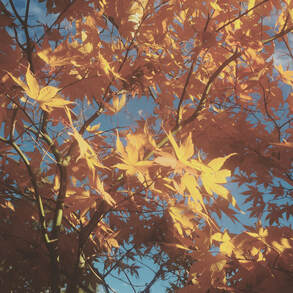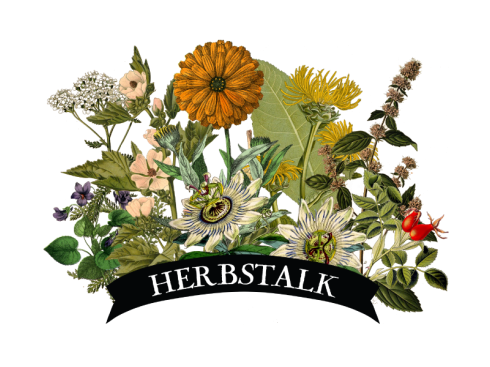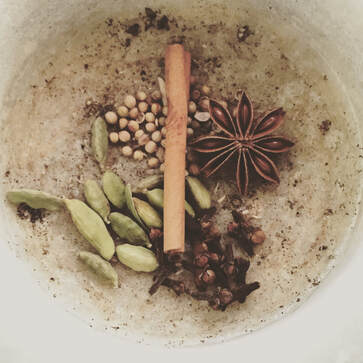 By: Marissa Ranahan Fall is a time for immense transition. This is evident in our bodies and surrounding environment. The earth begins to turn brown, trees shed their summer leaves, and the air transitions from heavy to crisp. And for most, autumn leaves us feeling empty, vulnerable, and raw. However, it also cultivates feelings of new energy and possibilities ahead. Autumn welcomes us with its dominant prana energy. Our outer air becomes dry, cooling, and subtle – all traits that are shared with the Vata Dosha. This is why, out of all the seasons, autumn is categorized as predominently vata. Given vata season is almost here, Autumn is perfect for settling into a new routine. Follow the guide below to explore how you can slowly start embracing vata season: Embrace Seasonal Routines: The cornerstone of health in Ayurveda begins with a seasonal routine. It’s important to align your lifestyle choices with what’s optimal for the current season. By doing this, you’ll prevent seasonally-induced Dosha imbalances. Begin by observing your climate and its seasonal fluctuations. In most parts of North America, this is a heavy vata season. Luckily, our culture has allowed us to adapt to these changes. It’s common to see Americans go from eating lighter summer meals – such as soups, salads, and greens – to making heartier breads with warm, nourishing vegetable stews. These heavier foods work well by naturally counteracting Autumn’s dry nature. By making seasonal lifestyle changes, you can remain connected to both yourself and the environment. Autumn and Vata Season: To balance vata’s dryness, it’s best to fill your autumn with nourishment, loving relationships, and an attainable daily routine. Fortunately, this becomes easier to maintain as the season goes on. Create an Ideal Morning Routine: One of the best ways to establish alignment is through a morning routine. This starts by creating a rhythm during your day (going to bed at the same time, eating meals at the same time, etc.). By practicing this, you’ll give your body an automatic sense of structure. Another way to healthfully start the day involves waking up early. The morning is an ideal time for contemplative practices and enjoying life’s stillness. During these hours, it’s best to gently reflect on the upcoming day. Afterward, you can ground yourself with an oil massage. For vata, organic sesame oil is recommended. To further your wellness, consider incorporating 10 minutes of light yoga or meditation into your day. Since vata thrives in gentle movements, simple yoga poses are recommended while tuning into the breath. If you enjoy the smell of essential oils during meditation, put a few drops of orange or geranium oil in a diffuser for added relaxation. Remember: When ending the day, try to go to sleep before (or around) 10 pm to ensure adequate rest and recovery. Exercise During Vata Season: For vata, it’s best to incorporate gentle movement into your exercise routine. Vata is easily aggravated by vigorous movement, so slower activities are best for daily practices. Some of the best exercises for vata include yoga, walking, hiking, and tai chi. All of these activities avoid putting unneeded stress on the body. While exercising, it’s best to avoid using your full athletic compacity. Instead, put 50% of your effort into your activity and breathe through the moments. After you’re done, remember to make rest a priority so your body can properly recover. Herbal Support for Vata Season: One of the best herbs to take during vata season is Chyavanprash. This herb helps with boosting immunity during the transition from summer to fall. Ideally, it’s best to take this herb at the start of your day. Ashwagandha is another wonderful herb that helps with anxiety and nervousness while promoting optimal digestion and elimination. If taking supplements are difficult for you, Ashwagandha can also be taken in liquid form. Additionally, others might gravitate towards Triphala if they’re looking for a gentle herb to aid in just digestive support. Herbal teas are also perfect for cultivating warmth in the Autumn weather. More specifically, those made from licorice root, ginger, and fennel promote easy digestion within the body. These teas can be ingested throughout the day as needed. Autumn Diet for Vata: Your diet is critical for soothing vata energy during autumn. Preferably, eating nourishing foods that have a high fat and protein content – along with warming spices – will help keep you grounded. Try to eat soft foods and top them with ghee or olive oil. For breakfast, it’s best to cook your grains with cinnamon and warm milk (either dairy or non-dairy is fine). Lunch and dinner should include soup with spices and steamed vegetables. If you’re not following a strict vegetarian diet, fall is the best time to consume meat and eggs. Most importantly, it’s wise to avoid cold, raw foods this season. Make sure to cook your vegetables to kickstart and help your digestion. Try to avoid white potatoes, broccoli, leafy greens and cabbage during the autumn months. However, if you enjoy these foods, consume them in moderation and cook them in organic ghee. Here are some ideal foods for vata season: Fruits: Apples, Bananas, Figs, Grapes, Mangoes, Oranges, Tangerines, Prunes, and Raisins Vegetables: Beets, Carrots, Garlic, Onions, Pumpkin, Squash, and Sweet Potato Animal Products: Beef, Buffalo, Chicken, Crab, Eggs, Fish, Lobster, Oyster, and Turkey Dairy: Butter, Cheese, Cream, Kefir, Warm Milk, Sour Cream, and Yogurt Spices: Allspice, Basil, Bay Leaf, Cardamom, Cinnamon, Clove, Cumin, Dill, Garlic, Ginger, Nutmeg, Oregano, Paprika, Parsley, Rosemary, Saffron, and Turmeric Oils: Almond Oil, Ghee, Olive Oil, Peanut Oil, Saffron Oil, and Sesame Oil Closing Thoughts on Vata Season: While routines can vary from person to person, aligning yourself with the rhythm of the seasons is key for staying grounded. This fall, try incorporating a vata balancing routine into your day. Even a few small changes can readily improve your overall health and wellness. And remember, don’t be afraid to embrace the earthly gifts autumn brings for you!
|
Archives
November 2023
Categories
All
|
Join the Newsletter!
Receive news about future Herbstalk events
Thank you!
You have successfully joined our subscriber list.
Copyright © Herbstalk 2024



 RSS Feed
RSS Feed